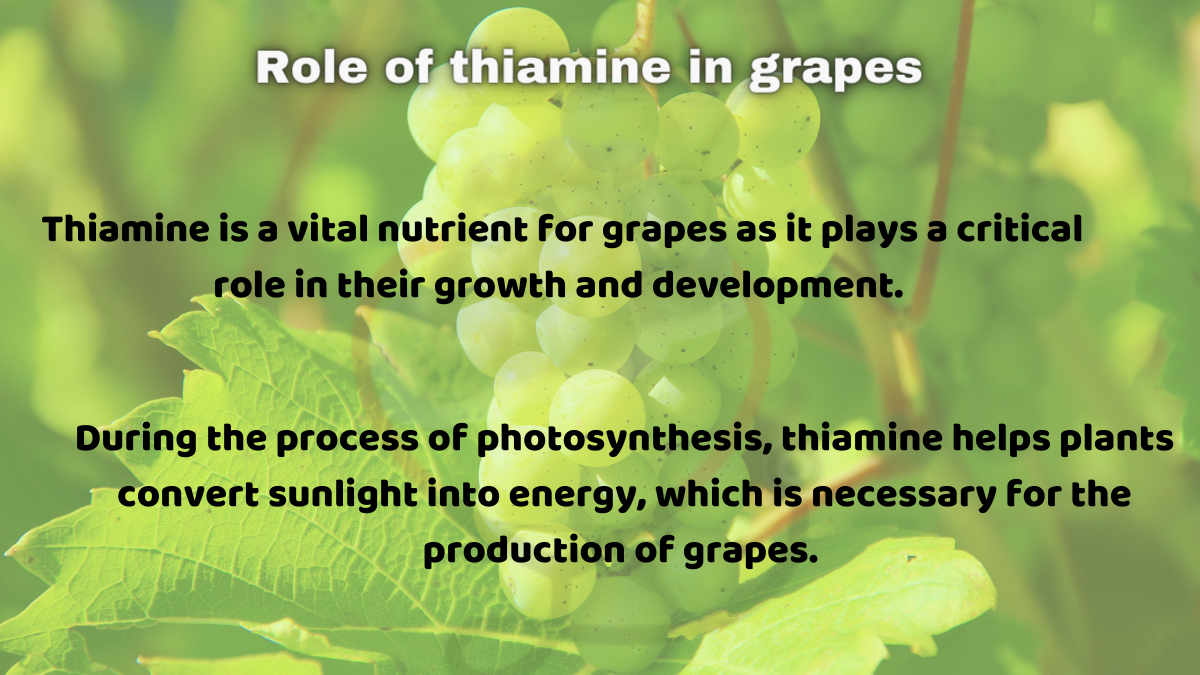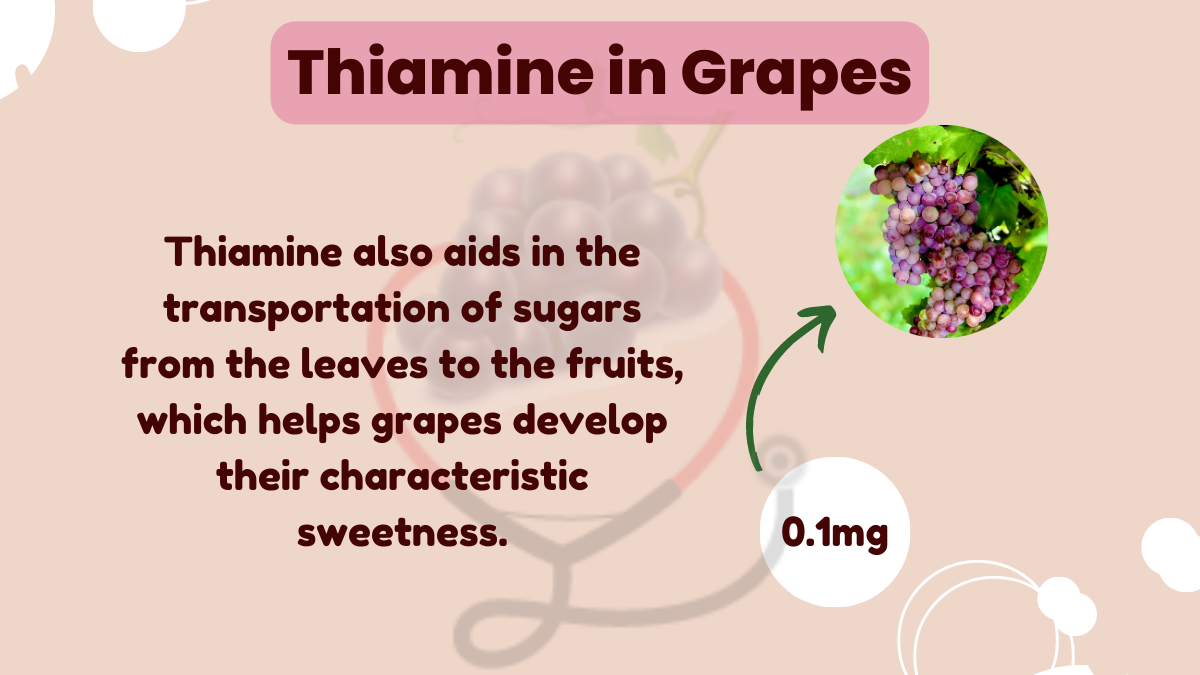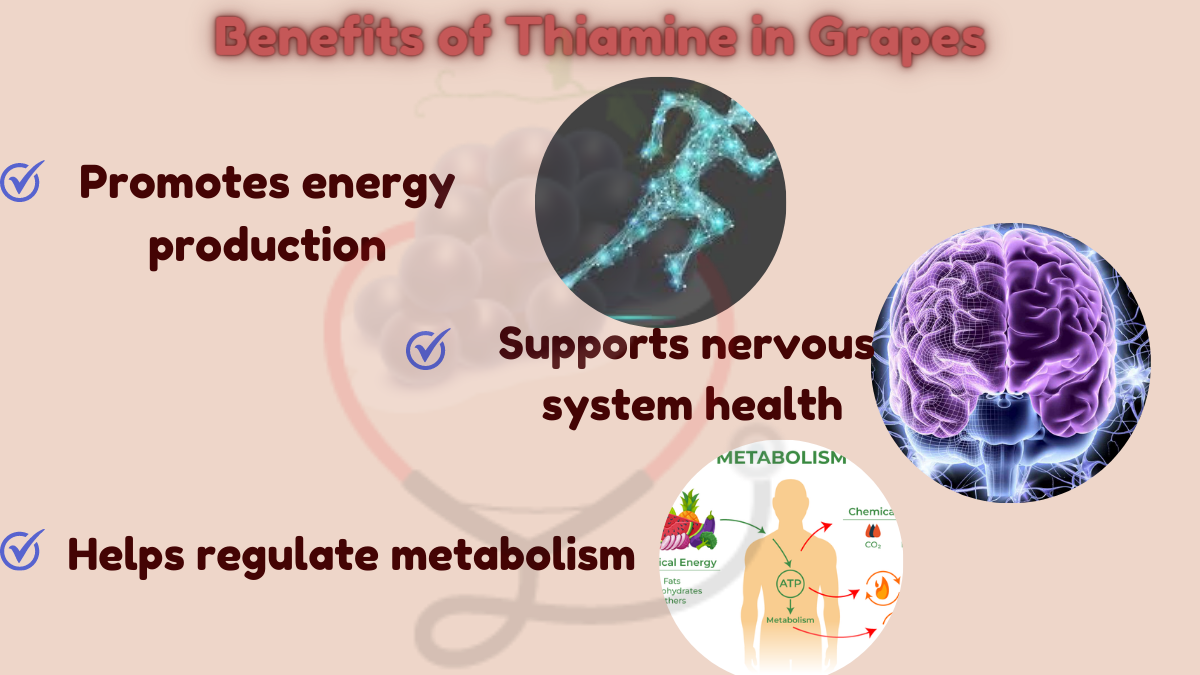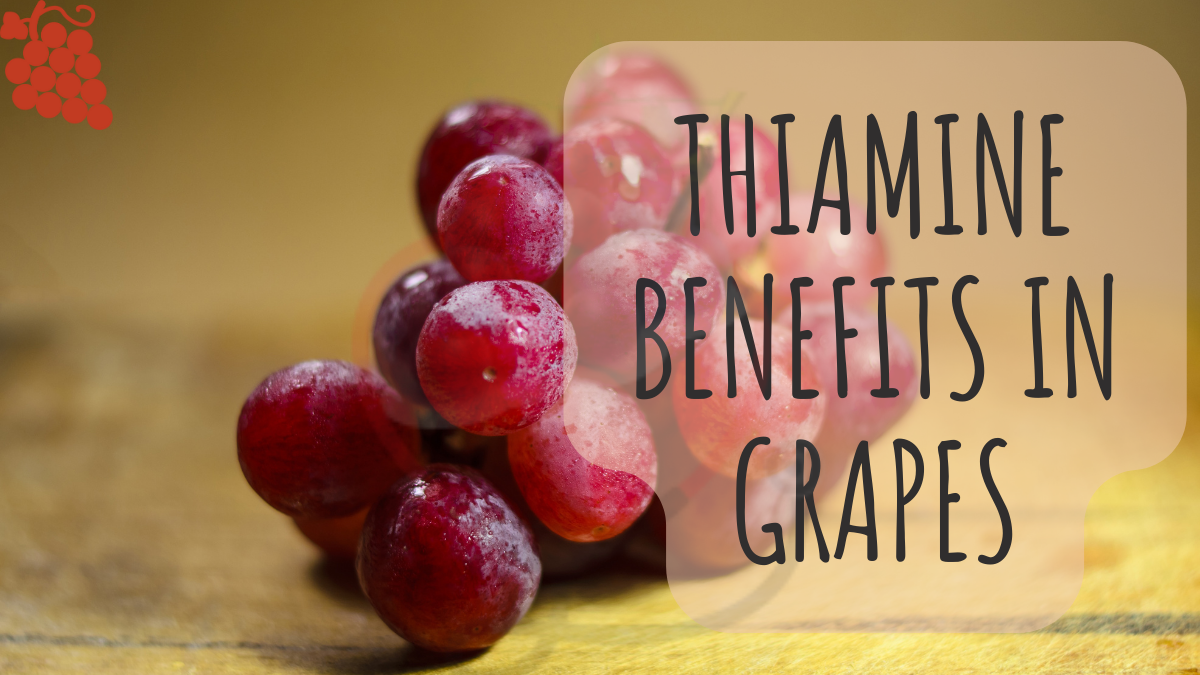Grapes are packed with essential vitamins like B1 (thiamine), B2 (riboflavin), and B6. [1]
These vitamins help us grow and stay healthy, especially by supporting protein metabolism.
Thiamine in grapes is an essential vitamin for human body.
Grapes also contain important minerals like copper, and vitamins B and K. All of these nutrients are really good for our body.
It is essential for the metabolism of carbohydrates and helps the body convert food into energy.
Thiamine is not produced by the body, which means it must be obtained through food sources or supplements.

In this article, we will explore the role of thiamine in grapes, its benefits, and how it can impact your health.
Role of thiamine in grapes
Thiamine is a vital nutrient for grapes as it plays a critical role in their growth and development.

During the process of photosynthesis, thiamine helps plants convert sunlight into energy, which is necessary for the production of grapes.
Thiamine also aids in the transportation of sugars from the leaves to the fruits, which helps grapes develop their characteristic sweetness.
Thiamine content in grapes
Grapes are an excellent source of thiamine, with a 100-gram serving of grapes containing approximately 0.1 milligrams of thiamine.

While this may not seem like a lot, it is worth noting that thiamine is typically measured in micrograms, which means that a 100-gram serving of grapes provides over 60% of the recommended daily intake of thiamine for adults.
Health benefits of thiamine in grapes
Thiamine plays a crucial role in maintaining overall health, and consuming grapes can be an excellent way to ensure you are meeting your daily requirements of this essential nutrient.
Here are some of the health benefits associated with consuming thiamine-rich grapes.

1: Promotes energy production
Thiamine is essential for converting food into energy, and consuming thiamine-rich grapes can help promote energy production in the body. [2]
This can help improve overall physical performance and reduce fatigue.
2: Supports nervous system health
Thiamine plays a critical role in maintaining a healthy nervous system, and a deficiency in this vitamin can lead to nerve damage and other neurological disorders. [3]
Consuming thiamine-rich grapes can help support nervous system health and prevent these issues from occurring.
3: Helps regulate metabolism
Thiamine is essential for the metabolism of carbohydrates, which means it can help regulate blood sugar levels and prevent the onset of diabetes. [4]
Consuming thiamine-rich grapes can help improve insulin sensitivity and reduce the risk of developing type 2 diabetes.
Thiamine, or vitamin B1, plays a critical role in maintaining overall health, and grapes are an excellent source of this essential nutrient.
Consuming thiamine-rich grapes can help promote energy production, support nervous system health, and regulate metabolism.
Incorporating grapes into your diet can be easy and delicious, whether you’re snacking on them, adding them to salads, or using them in baking.
Just be mindful of potential side effects and consume grapes in moderation.
FAQs
Can thiamine in grapes prevent heart disease?
While consuming thiamine-rich grapes can support proper heart function, it is not a guarantee against heart disease. A well-balanced diet and regular exercise are crucial for maintaining a healthy heart.
How many grapes should I consume daily?
There is no specific recommendation for daily grape consumption, but consuming a moderate amount (around 1-2 cups) can provide numerous health benefits.
Can grapes help reduce inflammation?
Grapes contain antioxidants and anti-inflammatory compounds, which may help reduce inflammation in the body. However, more research is needed to fully understand the extent of these benefits.
Can grapes help with weight loss?
Grapes are a low-calorie and nutrient-dense food that can be incorporated into a healthy diet to support weight loss. However, consuming too many grapes or grape-based products can still contribute to calorie intake and potentially hinder weight loss efforts.
Are there any medications that can interact with grapes?
Yes, grapefruit and grapefruit juice can interact with some medications, such as statins and some blood pressure medications.

